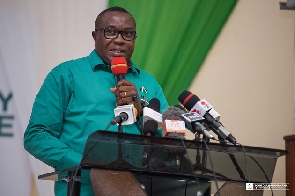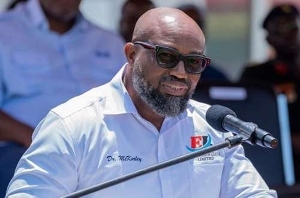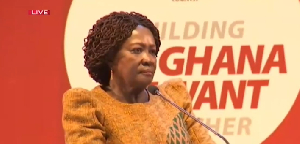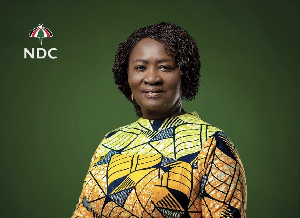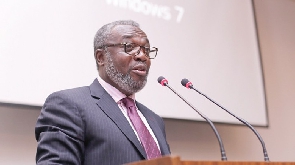 Director-General of GHS, Dr Nsiah Asare
Director-General of GHS, Dr Nsiah Asare
The Ghana Health Service (GHS) in conjunction with Japan International Cooperation Agency (JICA) has rolled out a five-year project in northern Ghana to meet changing demographics and disease patterns in a cost-effective way.
The scheme, which is called CHPS for Life Project, seeks to accelerate the attainment of Universal Health Coverage (UHC) through the implementation of Community-Based Health Planning and Services (CHPS) policy to create a resilient health system.
The five-year project is divided into two terms with the first one commencing in July 2017 and ended in July 2019, while term two spans from October 2019 through July 2022, according to Chief Advisor of the project, Mr Satoko Ishiga, who said this in a report.
The project which is matches with the Sustainable Development Goals is for the strengthening community-based health services focusing on the life-course approach in Northern Ghana, the report said.
Major project events that took place covered piloting of a cost-effective model of training CHOs, capacity building of CHOs to deliver services using the Life-course Approach and development of tools for effective joint planning and monitoring to improve health, it added.
It also included establishment of a revolving system to ensure continuous availability of referral tools, and the dissemination of innovations and best practices by the project.
The report said the first term successfully came to a close in April 2019 which was commemorated in concert with key partners in a day’s dissemination forum in Bolgatanga on 10th May 2019.
It created an opportunity to share with implementing partners and stakeholders, successes of the project, best practices, challenges, and lessons learned in the delivery of its mandate in the first term as well as perspectives on the project.
The forum, which was chaired by Dr Erasmus Agongo, a Former Director of PPMED, had in attendance representatives from the Ministry of Health, GHS, JICA Ghana, other Development Organizations, officers from Regional and District Health Directorates, various Regional Coordination Councils and Assemblies, project staff and the media.
Dr Agongo was quoted as saying the CHPS for Life project and its predecessors had contributed significantly to the successes of the project.
He called on partners not to relent in their efforts at ensuring Universal Health Coverage for Ghanaians.
The Director-General of GHS, Dr Nsiah Asare, who doubles as the Project Director, was thankful for JICA support and also called for greater collaboration from development partners particularly in CHPS, saying: “It is the surest for the country to attain Universal Health Coverage”.
Implementing partners made presentations on the various project outputs and activities, their successes, challenges, and the lessons learned.
Key successes highlighted include; the establishment of a CHPS database system that has greatly improved the availability of accurate and reliable CHPS data, strengthening of referral systems through training of frontline health workers and the establishment of a “revolving system” to ensure sustainability in the supply of referral logistics.
Other successes mentioned included; the training of one hundred and fifty-seven CHOs that greatly increased the number of functional CHPS zones, the development of various tools that have improved community mobilization and District Assembly support for CHPS and the roll-out of the Life-Course Approach (LCA) in the Upper West region.
Challenges faced by the project included high staff attrition rates that affects training impact, and the tedious process needed to approve developed materials.
Inadequate equipment at lower-level facilities that was affecting the roll-out of LCA activities is one other challenge project implementers have had to grapple with.
In terms of lessons learned, the willingness of communities to take charge of their health was observed.
In addition, cross-sector engagements particularly between District Assemblies and District Health Directorates was found to yield greater success in health delivery.
Dr Asare expressed satisfaction with the successes of the project within the first term and assured that GHS would do its best to address the challenges.
He again expressed gratitude to JICA and other development partners for their efforts at improving UHC in Ghana.


